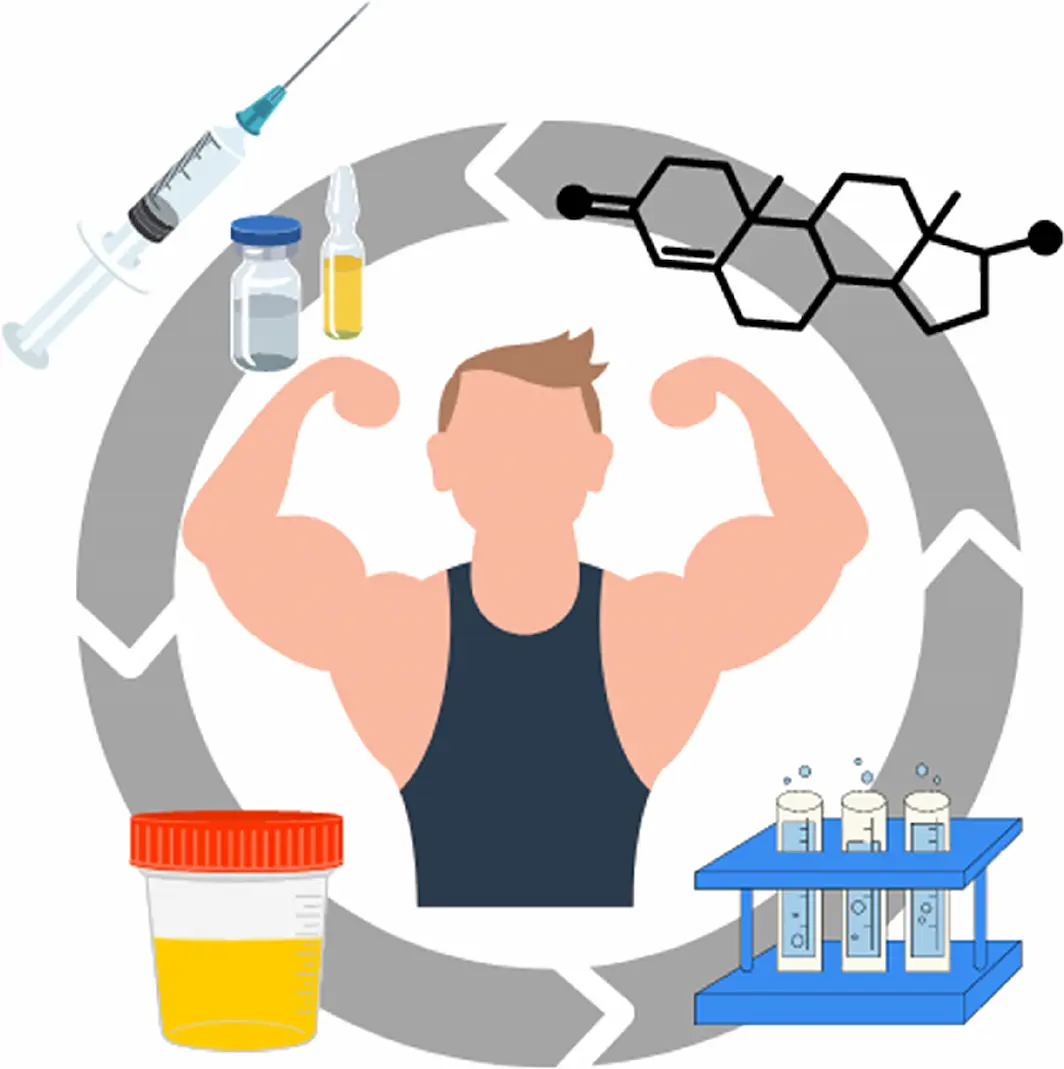Regular blood work plays a critical role in healthcare management, acting as a window into the inner workings of the body. Such tests are particularly essential before and after medical treatments or cycles, like chemotherapy, dialysis, or medication regimens, to monitor the body’s response and check for potential side effects. Accurate blood work can inform physicians about the effectiveness of treatment, the progress of disease, and the general health of the patient.
Engaging in routine blood work before starting a treatment cycle can help identify any pre-existing conditions that could impact the treatment’s effectiveness or cause adverse reactions. During treatment, periodic blood testing continues to be a vital tool for monitoring a patient’s health and making necessary adjustments to the treatment plan. After the treatment has concluded, further blood work assesses recovery, screens for complications, and ensures that bodily functions return to or maintain their normal state.
Quick Summary
- Blood work is essential for monitoring health before, during, and after a treatment.
- Periodic testing helps guide treatment decisions and adjusts for safety and efficacy.
- Post-treatment blood work is crucial for evaluating recovery and long-term health.
Understanding Blood Work Fundamentals

Before diving into the specifics of blood tests, it’s crucial to grasp that they are a key tool in assessing an individual’s health and detecting potential issues.
What Blood Tests Reveal About Health
Blood tests provide a window into one’s overall health, revealing vital information about the function and state of various organs. Complete Blood Count (CBC) is one of the most common blood tests and can detect a range of conditions by measuring the different cellular components of one’s blood, like red blood cells, white blood cells, and platelets. Abnormal results may indicate ailments such as anemia, infection, and even blood cancers.
Blood Test Types and Their Purposes
There are numerous types of blood tests, each designed to uncover specific health insights. Liver function tests, for example, measure enzymes like AST (Aspartate Aminotransferase) and ALT (Alanine Aminotransferase), which are markers for liver health. Elevated levels might signal liver disease or damage. On the other hand, tests measuring cholesterol levels help assess cardiovascular risk. Each test has a purpose, whether it’s to diagnose a disease, monitor a condition, or guide treatment decisions.
References
- Mayo Clinic Staff. “Complete blood count (CBC).” Mayo Clinic. https://www.mayoclinic.org/tests-procedures/complete-blood-count/about/pac-20384919
- National Heart, Lung, and Blood Institute. “Blood Tests.” https://www.nhlbi.nih.gov/health-topics/blood-tests
Before Starting a Treatment Cycle

Before initiating any treatment cycle, individuals must undergo comprehensive blood work to ensure safety and effectiveness. This assessment is critical for identifying any unknown health conditions and establishing a baseline for future comparisons.
Preparing For Blood Work
Patients should consult with their doctor to understand the specific requirements of their blood work. Preparation may involve:
- Fasting: Some blood tests require patients to fast for 8-12 hours to ensure accuracy in measurements such as blood sugar and cholesterol levels.
- Physical Exam: Completing a physical examination can help assess overall health and identify any conditions that could influence the treatment or blood work results.
- Medication Review: Patients must inform their doctor about any medications, supplements, or over-the-counter drugs they are taking, as these can affect blood test outcomes.
Establishing Baseline Values
Baseline values provide a reference point against which future blood tests can be compared. They are crucial for:
- Detecting Changes: A clear understanding of a patient’s normal range is pivotal for identifying any significant changes that may occur during or after the treatment cycle.
- Tracking Progress: Baseline tests help track the effectiveness of the treatment by comparing pre- and post-treatment values.
- Health Conditions: For patients with existing health conditions, baseline values are essential in managing and monitoring these conditions throughout the treatment.
References
- Fasting requirements for blood tests: https://www.mayoclinic.org/tests-procedures/cholesterol-test/about/pac-20384601
- The importance of a physical exam: https://medlineplus.gov/ency/article/002125.htm
- Medications affecting blood tests: https://www.aafp.org/afp/2010/0301/p635.html
Monitoring During Treatment

When undergoing any medical treatment, consistently tracking blood work is crucial for evaluating the patient’s response and guiding any necessary interventions.
Frequency and Timing of Blood Tests
Frequency and timing of blood tests should align with established medical guidelines and may vary depending on the specific treatment and individual patient needs. Typically, tests are conducted:
- Pre-treatment: To establish baseline levels.
- During treatment: At intervals that reflect the therapy’s expected rate of change in physiological markers.
- Post-treatment: To assess the results and plan for long-term monitoring if required.
Blood test schedules may look like this:
| Treatment Stage | Test Frequency |
|---|---|
| Pre-treatment | Once |
| Early stage | Weekly |
| Mid-treatment | Bi-weekly to Monthly |
| Late stage | Monthly to Quarterly |
Interpreting Fluctuations in Test Results
Examining test results involves looking for patterns and specific biomarker fluctuations that could indicate how the body is reacting to the treatment. For example, a decrease in white blood cells during chemotherapy could signal a temporary suppression of the immune system. Providers should put the data in context, considering:
- Normal physiological variations.
- The patient’s health history.
- The expected side effects of the treatment.
Interpretation must be guided by a robust understanding of the expected progression of the patient’s condition in response to the treatment.
Adjustments Based on Lab Work
Lab results are integral for informing any necessary changes to treatment plans. If the blood work reflects an unexpected response, healthcare providers may:
- Modify dosages
- Introduce additional interventions
- Stagger treatments to mitigate adverse effects
Regular monitoring ensures that the treatment is effective and minimizes potential risks, with adjustments made based on a combination of lab work, patient feedback, and clinical judgment.
Post-Treatment Evaluation

After completing a treatment cycle, blood work plays a crucial role in evaluating the efficacy of the treatment and identifying any arising complications. It is an indispensable tool for doctors to ensure the proper functioning of organs and the health of the patient.
Assessing Treatment Efficacy
To accurately assess treatment efficacy, comparing pre-treatment and post-treatment blood work results is essential. Blood tests can reveal a myriad of information, often indicating if the body is responding well to treatment.
- Hemoglobin Levels: If treatment aimed at resolving anemia, hemoglobin levels should show an increase.
- White Blood Cell Count: In cases of infections, a subsequent reduction in white blood cell count could suggest a successful treatment.
These measures help doctors to confirm whether the treatment has been effective and if further adjustments are necessary.
Detecting Potential Complications
Post-treatment blood work is also vital for early detection of potential complications.
- Liver and Kidney Functioning: Tests such as AST, ALT, and creatinine levels gauge if these vital organs are working properly post-treatment.
- Signs of Disease: Persistent abnormalities in blood work may hint at the presence of underlying diseases or chronic conditions that require attention.
This systematic approach enables healthcare providers to intervene promptly and effectively to prevent more serious health issues.
Long-Term Health Considerations

Ensuring long-term health involves regular assessments and appropriate lifestyle modifications. These steps are crucial in preventing potential adverse effects that might arise from medication cycles, especially in adults.
Routine Screening and Ongoing Monitoring
Adults should undergo routine blood work to detect any changes or complications that could arise from medication use. Screening tests generally include a complete blood count (CBC), liver and renal function tests, lipid profiles, and hormone levels. These tests are critical for identifying signs of abnormality that could indicate underlying issues. Monitoring should be adjusted based on age, sex, and health history, with more frequent screening for those at higher risk.
- Age: Screening frequency may increase with age due to a higher susceptibility to medication-related complications.
- Sex: Certain tests might be more pertinent depending on one’s sex due to different risks associated with hormonal imbalances.
Lifestyle Adjustments for Optimal Health
Lifestyle changes often complement medical screenings to promote long-term well-being. These adjustments should be tailored to an individual’s specific health needs and medication types. Diet and exercise play significant roles in maintaining a healthy balance while on cycles of medications.
- Diet: Incorporation of a balanced diet rich in essential nutrients.
- Exercise: Regular physical activity appropriate to one’s health status.
Both dietary habits and exercise routines should be adapted to ensure they are supportive of the individual’s overall health objectives and any medications being taken.
References
- Complete Blood Count (CBC): https://medlineplus.gov/lab-tests/complete-blood-count-cbc/
- Liver Function Tests: https://www.mayoclinic.org/tests-procedures/liver-function-tests/about/pac-20394595
- Lipid Profile: https://www.heart.org/en/health-topics/cholesterol/about-cholesterol/lipid-panel-test
- Hormone Levels: https://www.hormone.org/your-health-and-hormones/glands-and-hormones-a-to-z/hormones
Frequently Asked Questions

Effective monitoring of one’s health through blood work is crucial when it comes to the use of performance-enhancing drugs, such as anabolic steroids. This section addresses common queries regarding the timing, type, and importance of blood tests before and after steroid cycles.
What specific blood tests should be performed before starting a steroid cycle?
Before starting a steroid cycle, it is essential to conduct a comprehensive blood panel that includes a complete blood count (CBC), liver and kidney function tests, lipid profile, hormone panels including testosterone, estradiol, and luteinizing hormone (LH), and a thyroid panel to establish baseline health markers.
How does conducting blood tests after a cycle aid in monitoring health?
Blood tests after a cycle help in assessing how the body has responded to the steroids, including changes in liver and kidney function, alterations in lipid profiles, hormone fluctuations, and potential side effects that may require intervention or a modified post-cycle therapy.
What are the critical health markers bodybuilders need to check through blood tests?
Critical health markers that bodybuilders should check include liver enzymes (AST and ALT), kidney function (creatinine, BUN), lipid profiles (HDL, LDL, total cholesterol), hormone levels (testosterone, estrogen, LH), and red blood cell count, which can indicate polycythemia, a common condition related to steroid use.
How frequently should one undergo blood work when using performance-enhancing drugs?
Individuals should ideally do blood work prior to the commencement of a cycle, mid-cycle to make any necessary adjustments, and post-cycle to monitor recovery. The frequency may increase if one is using higher doses or experiencing side effects.
What are the potential risks of not conducting pre- and post-cycle blood work?
Not conducting pre- and post-cycle blood tests can result in undetected health issues such as liver stress, kidney damage, high cholesterol levels, or hormone imbalances, leading to long-term health consequences that may go unnoticed until they become severe.
Are there certain times when it is more crucial to do blood work in relation to anabolic steroid use?
It is particularly crucial to do blood work immediately before starting a cycle, at regular intervals during the cycle, and after the cycle ends to assess the impact of steroids on health and to aid in timely detection and management of potential adverse effects.
Dr. Grant Fourie, a specialist in male hormones, is based in Cape Town, South Africa. He provides comprehensive treatments for conditions related to low testosterone, such as erectile dysfunction, fatigue, and mood changes. His methods include hormone replacement therapy and other modern treatment options.
Contact me via email or phone to book personal appointment in my clinic: The Village Square, Cape Town - South Africa



